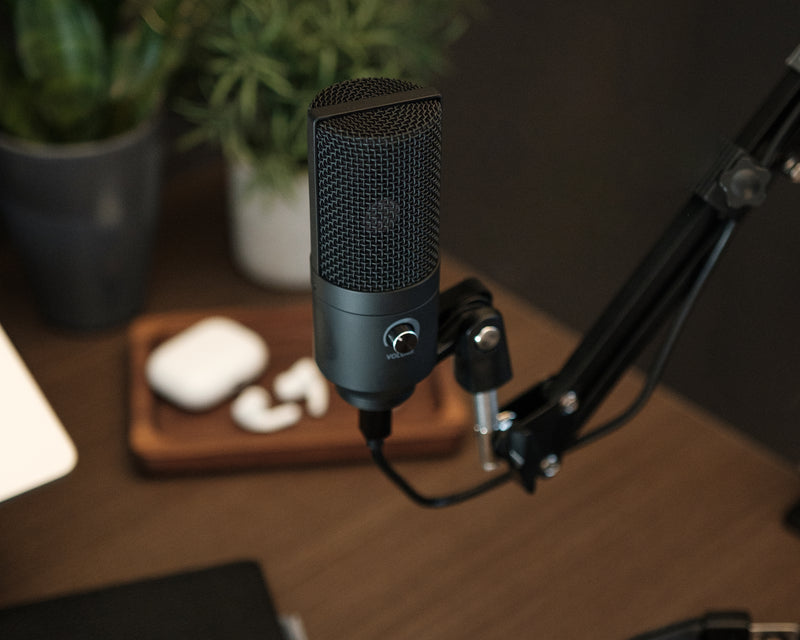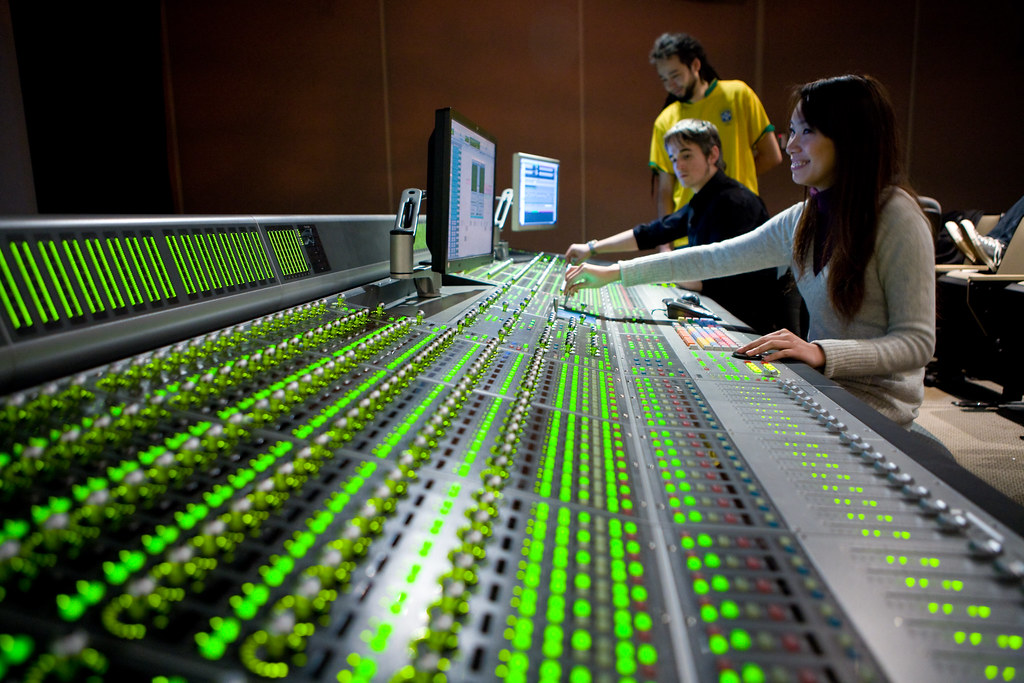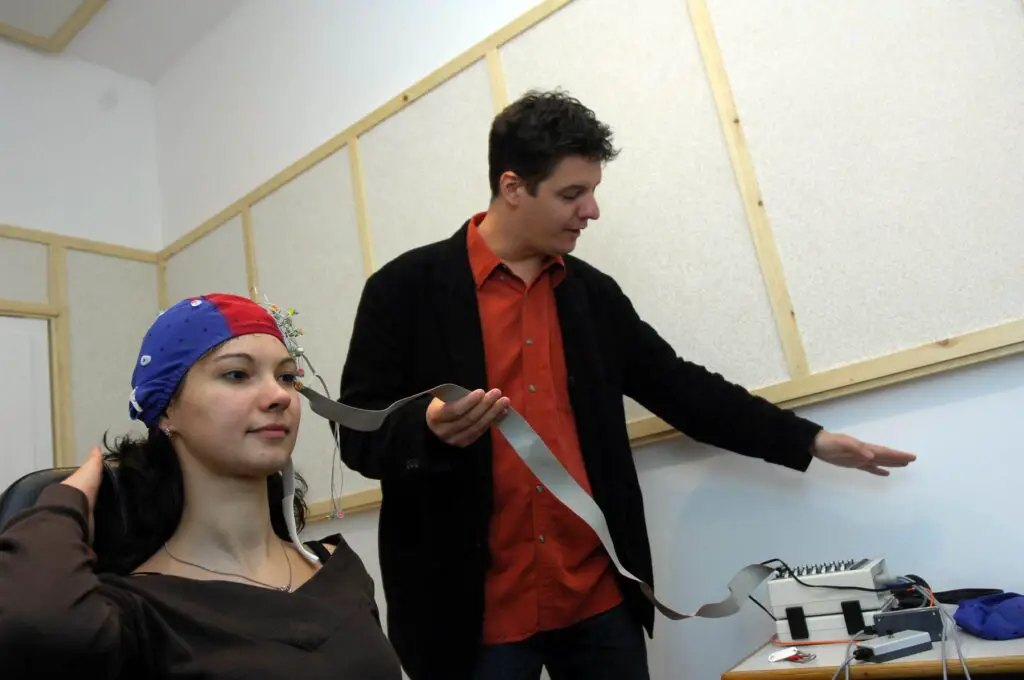Are you considering a career in music production? Pursuing a degree in music production can be a great way to gain the knowledge and experience you need to succeed in this field. To help you find the right program, we’ve compiled a list of the top 10 universities with music production majors. Whether you’re interested in audio engineering, music technology, music business, or sound design, these universities offer some of the best programs in the country. So, let’s dive in and explore the options available to you.
Table of Contents

Music Production Majors: An Overview
Music production majors are designed to equip students with the knowledge and skills necessary to record, mix, and produce music across a range of genres. These programs are available at various levels, including certificates, bachelor’s degrees, and master’s degrees. They can be offered in traditional classroom settings or through online courses that are accessible from anywhere in the world.
The curriculum for a music production major covers a wide range of topics, including studio recording techniques, music theory, performance, and music business. In these programs, students learn about the technology and techniques used to create music in the studio setting, as well as how to apply these skills in the industry. They also have the opportunity to gain hands-on experience with industry-standard equipment and software.
Graduates with a music production degree can pursue a variety of careers in the music industry. Some popular career paths include music production, audio engineering, sound design, music composition, and music supervision. Music producers and audio engineers typically work in recording studios or live sound settings, while music supervisors are responsible for selecting and licensing music for use in film, television, or advertising. With the knowledge and skills gained from a music production major, graduates are prepared to pursue a fulfilling career in the music industry.

List of Universities with Music Production Majors
If you are interested in pursuing a degree in music production, here are some of the top universities in the United States that offer a music production major:
1. Berklee College of Music – Boston, MA
Berklee College of Music is a world-renowned music school that offers a Bachelor of Music in Music Production and Engineering. This program is designed to provide students with a strong foundation in music technology, audio engineering, and music production.
2. Full Sail University – Winter Park, FL
Full Sail University offers a Bachelor of Science in Music Production that covers all aspects of music production, including recording, editing, and mixing. This program is known for its hands-on approach to learning and state-of-the-art facilities.
3. New York University – New York, NY
New York University’s Steinhardt School of Culture, Education, and Human Development offers a Bachelor of Music in Music Technology. This program covers a range of topics, including digital audio, music production, and audio engineering. Students in this program also have the opportunity to take courses in music business and music industry education.
4. University of Southern California – Los Angeles, CA
The University of Southern California (USC) offers a Bachelor of Music in Popular Music Performance with an emphasis in Music Production. This program combines music theory and composition with music production and audio engineering, giving students a well-rounded education in both areas. USC is located in Los Angeles, California, which is home to many of the world’s top music production studios.
5. University of Miami – Coral Gables, FL
The Frost School of Music at the University of Miami offers a Bachelor of Music in Music Engineering Technology. This program covers a range of topics, including music production, audio engineering, and music business. Students in this program also have the opportunity to take courses in music theory, composition, and performance.
6. Indiana University – Bloomington, IN
Indiana University’s Jacobs School of Music offers a Bachelor of Science in Recording Arts that covers a range of topics, including music production, audio engineering, and sound design. This program is designed to provide students with a strong foundation in both the technical and creative aspects of music production.
7. Middle Tennessee State University – Murfreesboro, TN
The Department of Recording Industry at Middle Tennessee State University offers a Bachelor of Science in Audio Production. This program covers a range of topics, including music production, audio engineering, and music business. Students in this program also have the opportunity to take courses in music theory and performance.
8. University of Texas at Austin – Austin, TX
The Butler School of Music at the University of Texas at Austin offers a Bachelor of Music in Music Production. This program covers a range of topics, including music production, audio engineering, and music business. Students in this program also have the opportunity to take courses in music theory and performance.
9. University of California, Los Angeles – Los Angeles, CA
The Herb Alpert School of Music at the University of California, Los Angeles (UCLA) offers a Bachelor of Arts in Music Production. This program covers a range of topics, including music production, audio engineering, and music business. Students in this program also have the opportunity to take courses in music theory and performance.
10. University of Michigan – Ann Arbor, MI
The School of Music, Theatre, and Dance at the University of Michigan offers a Bachelor of Fine Arts in Performing Arts Technology. This program covers a range of topics, including music production, audio engineering, and sound design. Students in this program also have the opportunity to take courses in music theory and performance.
These universities offer unique programs and opportunities for students interested in music production. For instance, Berklee College of Music’s music production and engineering major focuses on audio engineering and music production, while Full Sail University’s music production program provides students with hands-on experience and exposure to industry-standard equipment. The University of Southern California’s music production program combines music theory and composition with music production and audio engineering, giving students a well-rounded education in both areas.

Types of Music Production Majors
Music production majors are available in various degree levels and formats. Here are some of the most common types of music production majors:
Certificate in Music Production
Certificate programs typically take less than a year to complete and provide an introduction to music production techniques and technology. These programs are suitable for students who want to learn the basics of music production without committing to a longer program.
Associate Degree in Music Production
Associate degree programs typically take two years to complete and provide an in-depth education in music production. Students in these programs learn about studio recording, music theory, and music business.
Bachelor’s Degree in Music Production
Bachelor’s degree programs typically take four years to complete and cover all aspects of music production, including recording, editing, and mixing. Students in these programs also receive an education in music theory, performance, and music business.
Master’s Degree in Music Production
Master’s degree programs provide advanced education in music production and may include research or thesis requirements. These programs are designed to help students develop their skills in music production and prepare them for leadership roles in the industry.
Regardless of the degree level, music production majors typically cover topics such as audio engineering, recording techniques, music theory, and music business. Students in these programs learn how to produce music and work with artists to achieve their creative vision.

Careers in Music Production
Graduates who pursue a music production degree have a variety of career opportunities within the music industry. Some of the most common career paths for music production majors include:
Music Producer
Music producers work with artists to create and produce music. They are responsible for selecting the right studio, equipment, and personnel to create the desired sound. Music producers interpret the vision of the artist and bring it to life by guiding them through the process of recording, mixing, and mastering their music. They play a crucial role in the production process and help to shape the final product that is released to the public.
Audio Engineer
Audio engineers are responsible for recording, editing, and mixing music in the studio or live settings. They work closely with music producers, artists, and other personnel to ensure that the sound is of the highest quality. Audio engineers use specialized equipment and software to capture and manipulate sound, and are responsible for creating a final mix that is ready for release.
Sound Designer
Sound designers create and design sound effects for movies, television shows, and video games. They use a variety of tools and techniques to create sound effects that are realistic and immersive. Sound designers work closely with other members of the production team to ensure that the sound effects are synchronized with the visuals and contribute to the overall atmosphere of the production.
Music Composer
Music composers create original music for various media, including movies, television shows, and video games. They use their knowledge of music theory and composition to create pieces that are unique and expressive. Music composers work closely with directors, producers, and other members of the production team to ensure that the music enhances the overall experience of the production.
Music Supervisor
Music supervisors work in the film, television, and advertising industries and are responsible for selecting and licensing music for use in their productions. They work closely with directors, producers, and editors to find music that enhances the visual elements of a production. Music supervisors must have a deep knowledge of music and be able to identify the right piece of music for a specific scene or moment in a production.
These are just a few of the many career paths available to graduates with a music production degree. With the right training and experience, graduates can pursue a fulfilling and rewarding career in the music industry.

Scholarships and Financial Aid
Scholarships and financial aid packages are available to students pursuing a music production major in many universities. These scholarships can be merit-based, need-based, or talent-based. Additionally, work-study programs are available to students who wish to work part-time while studying to help finance their education.
Federal financial aid, including loans and grants, can also be applied for by students. The Free Application for Federal Student Aid (FAFSA) is the application used to assess the eligibility of a student for federal financial aid. Students should research the scholarships and financial aid options available at each university they are interested in attending and apply as early as possible to increase their chances of receiving financial assistance.

Music Production Degree Programs vs. Audio Engineering Schools
When it comes to music production education, students have two main options: pursuing a music production degree program or attending an audio engineering school. While both types of programs aim to teach students about music production and audio engineering, there are some key differences to consider.
Music Production Degree Programs
Music production degree programs are typically offered by traditional universities and colleges. These programs often cover a broader range of topics, including music theory, composition, and performance, in addition to audio engineering and music production. This well-rounded education can be valuable for students who want to pursue a career in music production but also want to explore other aspects of music.
Audio Engineering Schools
Audio engineering schools, on the other hand, are often specialized schools or vocational schools that focus solely on audio engineering. These programs are more narrowly focused and may be more suitable for students who are solely interested in pursuing a career in audio engineering or music production.
Comparing the Two
When deciding between a music production degree program and an audio engineering school, students should consider their individual goals and interests. Music production degree programs offer a more comprehensive education, while audio engineering schools provide a more focused curriculum. Additionally, music production degree programs are often offered by more traditional universities, while audio engineering schools may be more specialized.
Regardless of which type of program students choose, both can provide valuable education and training for a career in music production and audio engineering.

Music Technology Programs
Music technology programs are growing in popularity and are a great option for students interested in music production. These programs focus on providing students with the knowledge and skills to utilize the technology and software used in music production. They cover a wide range of topics, including digital audio workstations (DAWs), synthesizers, and effects processors.
Music technology programs can be found at many universities and can be offered as a standalone major or as part of a music production or music technology major. These programs also offer students the opportunity to work with industry-standard equipment and software, giving them practical experience that is essential to success in the music industry.
Some universities that offer music technology programs include Georgia Tech, University of California, San Diego, and New York University. Each program has its own unique curriculum and requirements, so it’s important to research each program carefully to find one that fits your individual needs and goals.

Emerging Trends in Music Production
The music production industry is continuously evolving, and staying up-to-date with emerging trends is essential for music production majors. Here are some of the latest trends in music production that aspiring music producers should be aware of:
Virtual Reality Music Production
Virtual reality technology is changing the way music is produced and experienced. With virtual reality, music producers can create immersive and interactive experiences for listeners, enabling them to experience music in new and exciting ways. For example, virtual reality can be used to create 360-degree music videos or live performances that allow viewers to feel like they are right in the middle of the action.
Artificial Intelligence Music Production
Artificial intelligence (AI) is being used to generate melodies and harmonies, and even entire songs. AI-powered music production tools like Amper Music and AIVA (Artificial Intelligence Virtual Artist) are becoming more popular, allowing music producers to create music faster and more efficiently. While AI-generated music may not replace human creativity, it can be a powerful tool to complement and enhance the creative process.
Mobile Music Production
Mobile devices are increasingly being used for music production, with apps like GarageBand, FL Studio Mobile, and BeatMaker providing powerful music production tools on the go. With mobile music production, aspiring music producers can work on their music anywhere and anytime, without needing expensive equipment or studio time. This trend is making music production more accessible than ever before, allowing anyone with a smartphone or tablet to create high-quality music.
As the music production industry continues to evolve, keeping up with the latest trends can help music production majors stay ahead of the curve and prepare for successful careers in the field.

Insider Tips for Music Production Majors
Navigating the music production industry and achieving success can be challenging. Here are some insider tips from industry professionals and music production graduates to help music production majors get ahead:
Network as Much as Possible
Networking is essential for success in the music production industry. Attend industry events, join professional organizations, and connect with other music professionals on LinkedIn and other social media platforms. Building connections can lead to new opportunities and can help you develop valuable relationships that can benefit your career in the long run.
Build a Portfolio
Creating a portfolio of your best work is crucial to showcase your skills to potential employers and clients. Your portfolio should include a variety of work that showcases your music production skills and highlights your unique style. You can create a portfolio website or use platforms like SoundCloud or YouTube to showcase your work.
Stay Up-to-Date with Industry Trends
Staying current with the latest music production technologies and techniques is essential in a rapidly evolving industry. Read industry publications, attend conferences and workshops, and follow industry experts on social media to stay informed about the latest trends and developments. Continuous learning will keep your skills sharp and help you stay competitive in the industry.
Be Persistent
The music production industry can be highly competitive, so it’s important to stay persistent and keep working towards your goals. Be patient, work hard, and don’t give up on your dreams. Remember that success in the music production industry often takes time and dedication, but with persistence, you can achieve your goals.

Music Production Success Stories
Success in the music production industry is possible with hard work and dedication. Here are some success stories from music production graduates to inspire and motivate music production majors:
Jack Antonoff
Jack Antonoff is a Grammy-winning music producer who graduated from the University of New Jersey with a degree in music production. Antonoff has produced hit albums for artists like Taylor Swift and Lorde. In addition to his work as a producer, Antonoff is also a successful songwriter and musician. He is known for his collaborations with artists like St. Vincent and his own band, Bleachers.
Sylvia Massy
Sylvia Massy is a renowned music producer who has worked with artists like Tool and Prince. Massy graduated from the University of California, Berkeley with a degree in recording arts. She went on to become one of the most successful music producers in the industry, known for her innovative and experimental approach to music production. Massy has also authored a book on music production, titled “Recording Unhinged”.
Linda Perry
Linda Perry is a Grammy-nominated music producer who has worked with artists like Christina Aguilera and Pink. Perry started her career as a songwriter and musician before transitioning to music production. She has also released several solo albums and is known for her work as the lead singer of the band 4 Non Blondes.
These success stories demonstrate that a degree in music production can open many doors and lead to a successful career in the music industry. By researching and comparing different programs, students can find the right fit for their interests and career goals, just like these successful music production graduates.
Check out our other content!
If you found this article helpful, be sure to check out our other content on music education and the music industry. We provide valuable resources and information to help you succeed in your music career.


